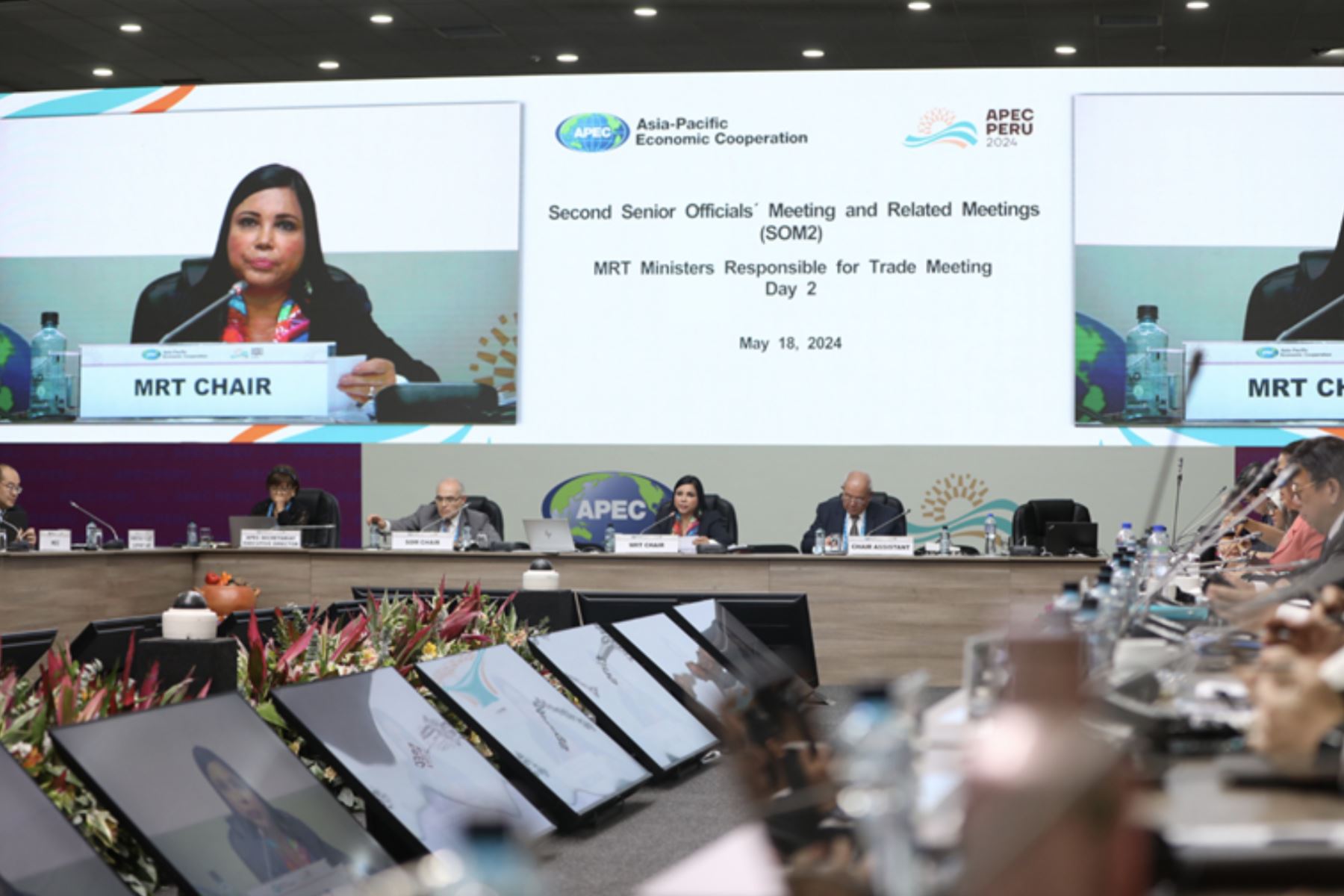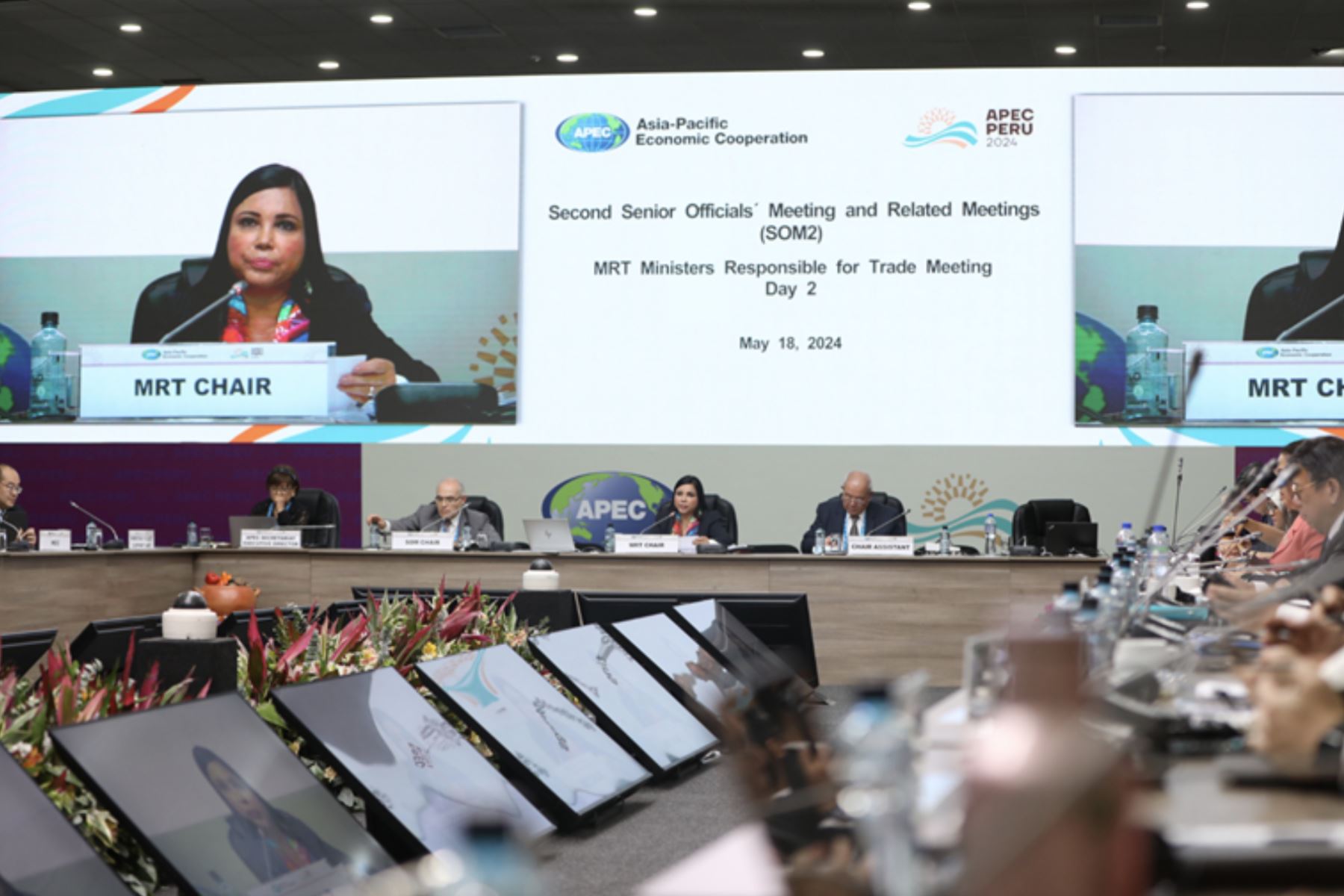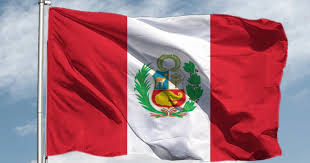
AREQUIPA (Peru), May 20 (NNN-ANDINA) — Asia-Pacific Economic Cooperation (APEC) Trade ministers from 21 member economies issued a joint statement upon conclusion of their meeting in Arequipa on May 17-18.
The statement reflects the outcomes of the 2024 APEC Ministers Responsible for Trade Meeting chaired by Peru’s Foreign Trade and Tourism Minister Elizabeth Galdo.
In the statement, APEC trade ministers recognized that trade has been facing strong headwinds in recent times, and reiterated their commitment to keeping markets open, removing unnecessary barriers to trade and strengthening trade and investment facilitation for all.
They reiterated the importance of continuing to advance the Free Trade Area of the Asia-Pacific (FTAAP) agenda as an important shared initiative in a manner that is market-driven and that contributes to high standard and comprehensive regional undertakings.
Ministers also encouraged the promotion of trade and investment in products that lead to positive environmental outcomes and reaffirmed their commitment to further promote trade policies and programs that reduce obstacles and improve their capacities to participate in global markets, including through global and regional value chains.
“This meeting provides us the opportunity to reiterate our support for the World Trade Organization and its decisions, advance our efforts on the Free Trade Area of the Asia-Pacific (FTAAP) agenda, strengthen connectivity and resilient supply chains, and enhance micro, small and medium enterprises’ access to formal and global markets,” said Galdo.
The meeting called on ministers to intensify efforts aimed at promoting mutually supportive trade and investment policies, particularly in navigating the complex trade environment in the region shaped by a dynamic global economy, evolving regional partnerships and the lingering impacts of the pandemic.
With Peru as the host of APEC 2024 set to reinvigorate the FTAAP, Minister Galdo reiterated that this has been long-term endeavor and that Peru is an active supporter of the FTAAP.
“Eight years later, since APEC leaders last adopted the Lima Declaration on FTAAP in 2016, we aim to instill the FTAAP agenda with additional guiding post, to make it more in tune with the changes in the international and domestic realms, especial the ones in the trading system,” she said.
“Our work in advancing the new look of FTAAP is crucial to ensure that APEC keeps delivering in a global context of permanent changes and opportunities,“ said Ambassador Carlos Vasquez, 2024 Chair of APEC Senior Officials’ Meeting.
“The FTAAP is a converging process in which we need to address challenges and opportunities that need to be considered as part of future trade agreements and undertakings. It is also an opportunity for building more inclusive trade as this is one of the best ways to achieve sustainable development,” he added.
Carlos Kuriyama, the director of the APEC Policy Support Unit, reported to trade ministers that while there has been a significant progress of reducing average tariffs in APEC, more work needs to be done to close the sizeable gap between tariffs on agricultural and non-agricultural goods.Kuriyama also reported that non-tariff measures affecting trade are growing, and account for 75 percent of the total of trade-restrictive measures.
“Amid the economic uncertainty and new trade challenges, APEC economies need to strengthen economic integration in the region to keep trade open, ensure stability and address new challenges. In this context, new and upgraded trade agreements could address new trade challenges,“ he added.
Setting the scene for the deliberation trade facilitation and trade and inclusion, APEC Secretariat Executive Director Dr. Rebecca Sta Maria emphasized the integral role of this work, as member economies focus on moving business from the informal sector to the formal and global economy.
“We must ensure that our formal sector itself is business-friendly, that our processes and procedures are not onerous. In this context, the work we are doing through the Enhanced APEC Agenda for Structural Reform is necessary to ensure that our trade rules and regulations are fit-for-purpose and relevant and provide the incentive for those in the informal sector to transition to the formal economy,” Dr. Sta Maria stated.
The executive director reiterated that APEC’s work on trade facilitation and regional economic cooperation cannot be an end in themselves but the means to ensure economic benefits to all our people.
“The voices of small businesses, women entrepreneurs, Indigenous peoples and those with untapped economic potential, people with disabilities, and those in the informal sector must be heard as we work on trade facilitation and trade and inclusion,” she concluded.
Peru is hosting APEC for the third time after the 2008 and 2016 editions.
APEC is made up of: Australia, Brunei Darussalam, Canada, Chile, People’s Republic of China, Hong Kong, Indonesia, Japan, Republic of Korea, Malaysia, Mexico, New Zealand, Papua New Guinea, Peru, the Philippines, the Russian Federation, Singapore, Chinese Taipei, Thailand, the United States, and Vietnam.
Together, they account for 62% of world’s GDP, 48% of global trade in goods and services, plus 38% of the planet’s population. — NNN-ANDINA





